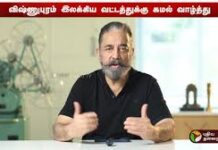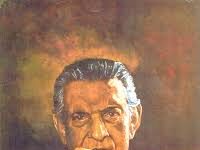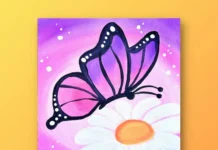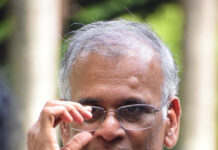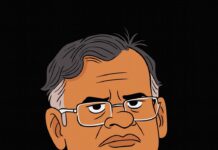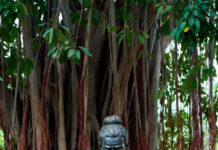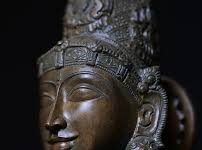A Fine Thread And Other Stories வாங்க
Dear Writer Jeyamohan,
Journey to Washington DC with ‘A fine thread and other stories’ Book:
It was a remarkable spring break that I spent with my father as we journeyed to Washington DC. As you may know, spring holds a special significance in the capital city of the United States, with the iconic cherry blossoms adorning the landscape in shades of purple and white. It was truly exceptional to witness this natural spectacle together. A standout experience was our visit to a museum dedicated to African American history, which illuminated their rich cultural heritage and the adversities they endured. My father reminisced about his prior visit to the same museum with the writer Jeyamohan during a trip to the United States,My dad remarked that writer Jeyamohan genuinely appreciates and respects diverse cultures, as we were exploring the museum. Within the museum, we bore witness to the struggles endured by African Americans, notably the harsh reality of segregation. Exploring a replica bus, we were struck by the stark division between seating for white and black individuals, evoking a deep sense of empathy for the challenges they faced during that era. My favorite aspect of the museum was the musical exhibit, where I thoroughly enjoyed immersing myself in their rap, hip hop, and rock songs. One track, “Self Destruction,” particularly resonated with me for its poignant exploration of the hardships faced by African Americans.
As our five-hour road trip progressed, boredom began to set in, but my father came to the rescue by presenting me with a second book, “A Fine Thread,” translated by Jegadeesh Kumar. This followed my enjoyment of stories such as “Elephant Doctor” and “A Hundred Armchairs” from the “Stories of the True” collection. “A Fine Thread” proved to be a captivating read, enriching the remainder of our journey.
My top favorite chapter from ‘A Fine Thread and Other Stories’ is ‘Shadow Crow.’ It recounts the tale of a monk named Asita journeying through Sri Lanka, where he encounters Narayana Guru, who claims to be a Buddhist, surprising Asita. Their conversation delves into various aspects of Buddhism, including a discussion of Advaita. Meanwhile, at the Ramakrishna monastery, a debate arises regarding the concept of dispassion, with Vishwananda likening art to a cuckoo and later to a thief, prompting philosophical reflection. The narrative then shifts to a poignant family incident involving Asita’s grandfather and a crow. Despite warnings, the grandfather kills a crow, leading to a series of ominous events where subsequent generations are plagued by crow attacks. This haunting cycle persists until Asita, now living in the Himalayas, encounters a raven during a harsh winter. Instead of harm, the raven offers unexpected affection, marking a turning point in Asita’s relationship with crows. Eventually, through empathy and understanding, Asita finds solace and safety, ending the cycle of attacks. The chapter beautifully explores themes of karma, family legacy, and redemption, culminating in a heartwarming resolution where compassion triumphs over fear.
The Last Machine tells the tale of a scientist named Don who invents a machine capable of making people vanish. When three men, Grigor, Yevgeny, and Ivan, inquire about the machine, Don, feeling a bit embarrassed, reveals he is a nomad without a homeland and his name, though Spanish-sounding, lacks real meaning. Despite this, the men listen intently. Don explains that he created the machine but lacks permission to share it with the world. Suddenly, the Chancellor enters the room and inquires about the machine’s purpose. Don proudly declares it is meant to obliterate history. Intrigued, the Chancellor asks to try the machine himself. Don agrees, and the Chancellor selects Grigor as the test subject. As the machine is activated, Grigor lets out a cry and disappears before everyone’s eyes. Astonished, they search for any trace of Grigor but find nothing. Don then presents the machine as a gift to the Chancellor, who expresses gratitude, leaving Don with a sense of pride.I understand how scientific advancements can sometimes be utilized for bad intentions.
As I progress through the book, I intend to provide further reviews once I have developed a solid understanding of the stories rooted in Indian legacies.
I wholeheartedly recommend this book to my fellow readers, especially those who have immigrated from India. I take this opportunity to extend my gratitude to writer Jeyamohan and translator Jegadeesh Kumar for crafting such an enriching literary work.
With Love,
Varsha Vivek

